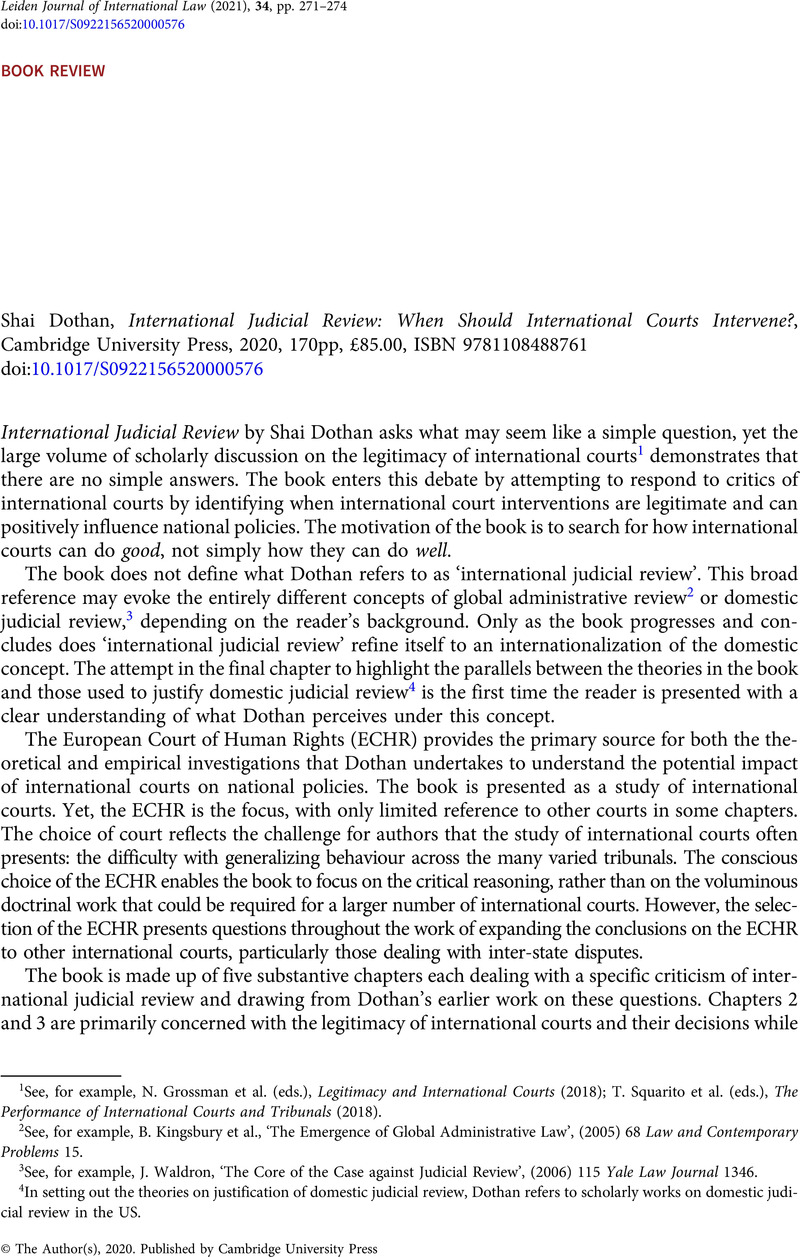No CrossRef data available.
Published online by Cambridge University Press: 02 December 2020

This work was partly supported by the Research Council of Norway through its Centres of Excellence funding scheme (project number 223274 - PluriCourts Centre) and the FRIPRO Young Research Talents (project number 274946 - State Consent to International Jurisdiction, Prof. Dr. Freya Baetens).
1 See, for example, N. Grossman et al. (eds.), Legitimacy and International Courts (2018); T. Squarito et al. (eds.), The Performance of International Courts and Tribunals (2018).
2 See, for example, B. Kingsbury et al., ‘The Emergence of Global Administrative Law’, (2005) 68 Law and Contemporary Problems 15.
3 See, for example, J. Waldron, ‘The Core of the Case against Judicial Review’, (2006) 115 Yale Law Journal 1346.
4 In setting out the theories on justification of domestic judicial review, Dothan refers to scholarly works on domestic judicial review in the US.
5 S. Dothan, International Judicial Review: When Should International Courts Intervene? (2020), 36.
6 E. Posner and C. Sunstein, ‘The Law of Other States’, (2006) 59 Stanford Law Review 131.
7 Dothan defines these types of behaviour as ‘(1) legalist models – judges try to implement the law itself in their judgments. (2) attitudinal models – judges decide sincerely based on their policy preferences. (3) strategic model judges try to promote their preferences strategically, taking into account the possible reactions of other actors’: supra note 5, at 63.
8 The ‘bandwidth hypothesis’ refers to a ‘network [resembling] a pipe through which information is transmitted, the denser the network, the wider the pipe and the more accurate information becomes’ whereas the ‘echo hypothesis’ argues that ‘information flow within a dense network is not enhanced but rather corrupted’: S. Dothan, ‘A Virtual Wall of Shame: The New Way of Imposing Reputational Sanctions on Defiant States’, (2017) 27 Duke Journal of Comparative and International Law 141, 182–3.